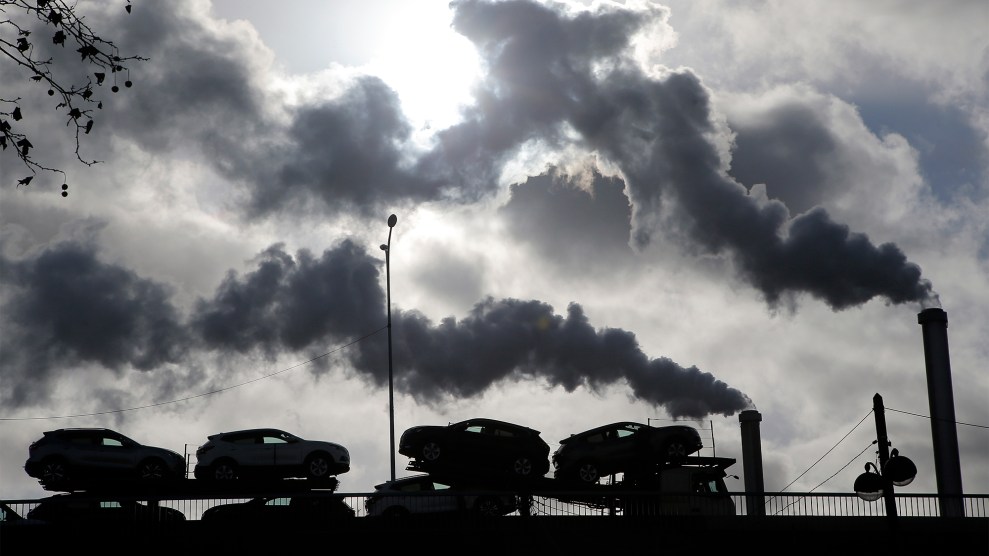
Smoke rises from a factory as a truck loaded with cars crosses a bridge in Paris.AP Photo/Michel Euler, File
President Joe Biden and leaders of some of the world’s richest countries disappointed environmentalists Sunday at the G7 annual summit by failing to agree on a deadline to end their use of coal for electricity.
Burning coal is one of the biggest drivers of global warming, and curtailing its use is a priority for Biden, who has described climate change as the greatest threat to US national security. At the summit, the United Kingdom had encouraged the other G7 nations to agree to phase it out in the 2030s, in order to meet their goals of limiting global temperature rise.
But when G7 leaders sat down Sunday to talk about climate change, they did not land on a specific time frame to ban coal, and instead only vaguely agreed to “accelerate” efforts to turn away from it. “It was a discussion—a difficult one,” an EU official told Politico, noting that not all G7 members would agree to a deadline. (The other members include Canada, France, Germany, Italy, Japan, and the United Kingdom.) “An overwhelming majority could have lived with the commitment in the 2030s but some were not able because the challenge would be too high in terms of energy supply in that country.”
The group’s failure to ban coal by a certain date worries energy experts, in part because it makes it harder to pressure China to curb its own carbon emissions. “It’s very disappointing,” Jennifer Morgan, executive director of Greenpeace International, told the New York Times. “This was a moment when the G7 could have shown historic leadership, and instead they left a massive void.”
That’s not to say there was no progress on climate change at the summit. The group members agreed to stop international funding for coal projects that lack technology to capture and store carbon dioxide emissions within the next two years. They promised to give $2 billion to help emerging economies shift away from coal-fired power generation. And the group committed to “net zero” emissions “no later than 2050.”
Still, energy experts were hoping for a bolder plan. “It doesn’t seem like they were the ambition setters at this G7,” Morgan said of the Biden administration.

















